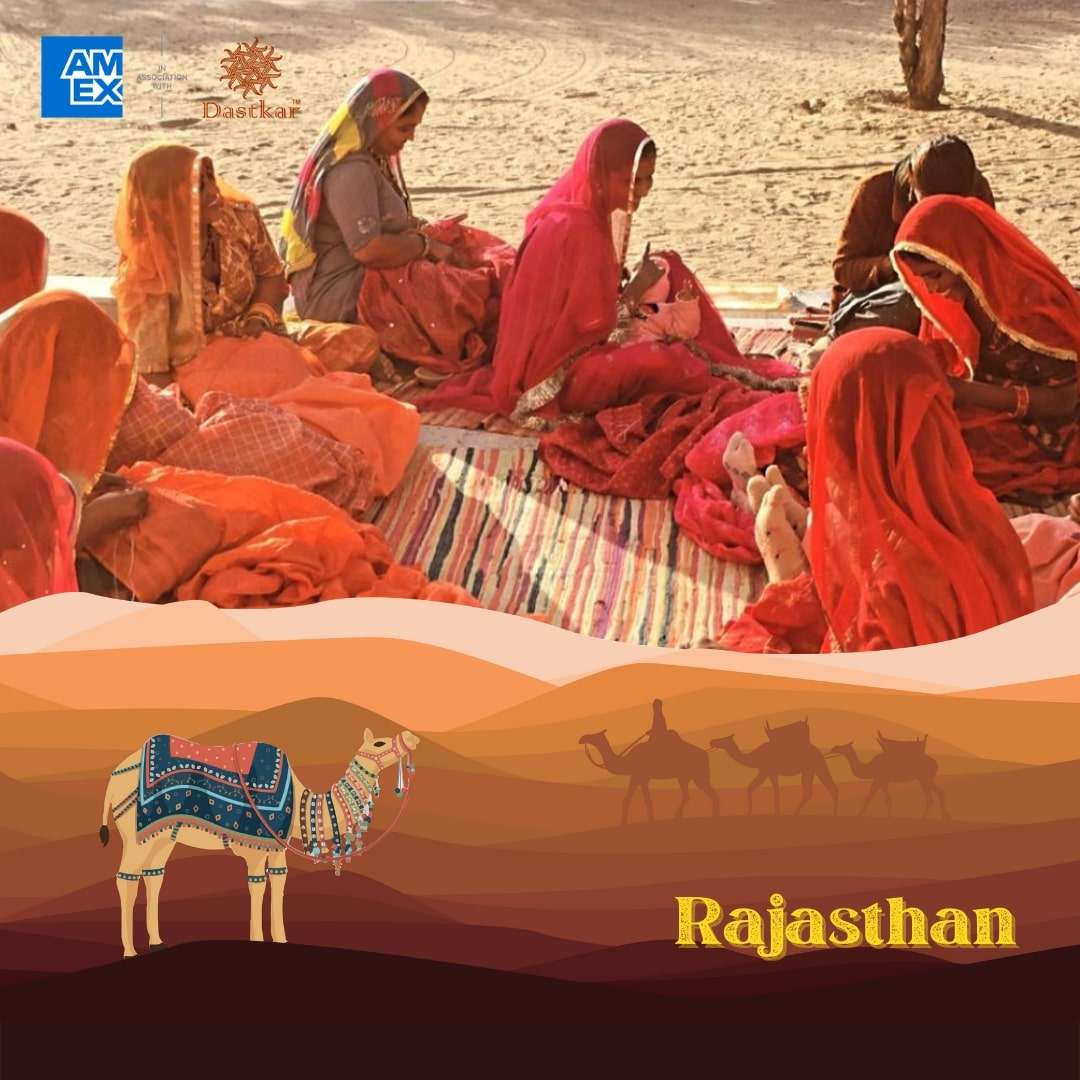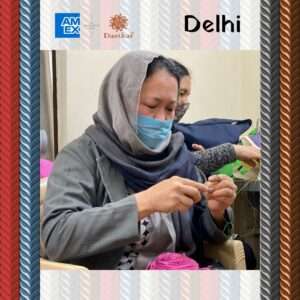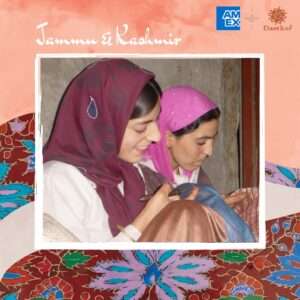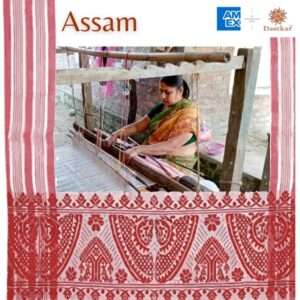Both local social and cultural practices and tourism have made Rajasthan a craft paradise. Its diverse communities, each with their distinctive wearing styles, religious rituals, and festivities, mean that costumes, artefacts, the interiors and exteriors of their homes, are all beautifully embellished, with both men and women as makers as well as wearers. Women embroider suf, kharak and Sindhi taropa stitches, both men and women block-print ajrak, dabu, Sanganeri and Bagru yardage and sarees, women do tie-dye bandhani and laheria and now shibori and clamp dying; they combine together to create footwear and accessories – the men crafting the leather, the women embroidering it. Turned lacquer bangles, beautiful silver, enamel, and stone jewellery, appliqué and patchwork quilting, the art of blue pottery that came to Jaipur via Samarkand, striking woven pattus and the delicate tracery of Kota handlooms, the art of the patwa threaded into colourful contemporary necklaces, earrings and pendants. Pichwai, phad and miniature painting tell the stories of warriors, gods and royal dynasties, while carved woodwork, mud-mirror-work and mandana paintings decorate the walls of their homes. Even their camels and carts are embellished.
A craft initiative that is working towards uplifting women refugees from Afghanistan based out of Malviya Nagar, Delhi is Archissha. It has around 100 Afghan refugee women directly and indirectly associated with the initiative. They make products using Afghani embroideries and are constantly learning new techniques such as crochet. Coming from extremely poor conditions, our country provided them refuge however no citizenship, without any status and opportunities, well to do people of Afghanis resorted to doing multiple small jobs and became daily wage earners to sustain themselves. Archissha provided the women of these families a platform to earn a living leveraging their effort and creativity. Utilising their basic traditional skills they made items using the crochet and embroidery skills. To further elevate the economic distress that these women were facing due to the lockdown, they reached out to Dastkar for help and support. With the funds provided, Archissha developed a new range of woolen blankets delicately embroidered with crochet motifs & knitted blankets and paid off the wages of 20-25 women. They have made around 20+ blankets using their old embroidery techniques. The women were in dire need of help and support which was provided via the funding given by American Express through Dastkar’s Artisan Support Funds. They couldn’t afford to pay off their monthly house rents, put food on their tables as their income had completely halted due to the pandemic. The funds aided greatly in furthering the endeavours of Archissha in backing these women artisans from Afghanistan. “We are glad to be back at the centres and started work again post the lockdown. The orders at Archissha may have reduced post the lockdown, but it’s better to have something to do than no work at all.” says Tamanna from Archissha.





